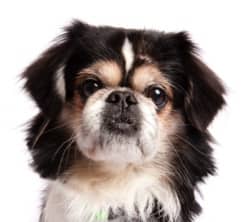Senior Dogs, Medical Care and Muttville Love
The heart of Muttville Senior Dog Rescue is in the rescue, care and rehoming of senior dogs. Muttville’s tagline “It’s never too late for a new beginning” says it all! What makes Muttville particularly unique as a rescue organization is that it has its own Veterinary Suite. Angela Ramiro, Veterinary Program Manager continues to grow the capabilities of the Vet Suite and manages the Vet Suite Volunteer Program. Thanks to a generous donor, the Vet Suite hit a new level of performance when Dr. Rebecca Rader, DVM joined as Muttville’s only full-time veterinarian.
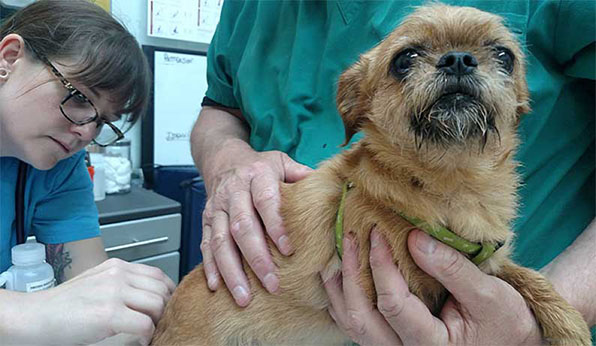
The Benefits of an Internal Veterinary Program
Muttville’s internal veterinary program allows for faster processing of a senior dog once they’ve arrived. The sooner a dog can be scheduled for an initial intake exam and assessment, the quicker that dog receives the necessary medications, treatments or scheduled surgeries. Once our seniors are assessed and medically cared for, they’re ready to be seen by the public and will be fostered, then adopted or identified for Muttville’s hospice program.
The most common surgeries scheduled are spays, neuters and dentals. There’s the “Muttville Special” which is either a spay or neuter and a dental. Even as a senior dog, it’s important to get spayed or neutered; it’s not just to prevent pregnancies. Female dogs that are not spayed are at risk of mammary tumors, uterine infections and uterine cancer. For male dogs, health risks without neutering include testicular cancer and prostate disease.
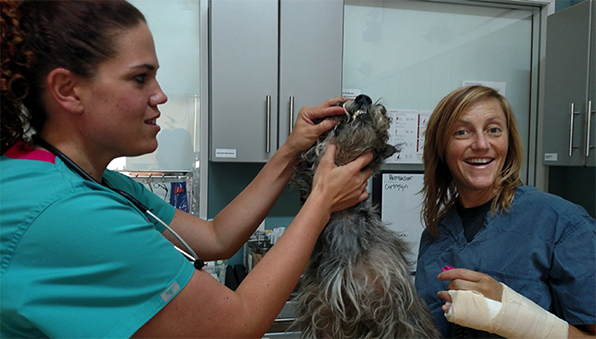
When it comes to a dental exam, it’s common to see seniors come in with severe gum disease. Dogs are noted with severe gingivitis, dental calculus, and sometimes fistulas, where a hole develops between a dog’s oral cavity and nasal passages because of a loss of gum tissue and bone around the teeth. Surgery is necessary to treat the dog, scale the teeth, and perform extractions and to repair fistulas.
Dr. Rader schedules more complex procedures that require sedation. Some dogs arrive in a painful state, like Buddy, a Shepherd mix. Buddy had a severe ear infection which caused an ear hematoma that over time split his ear. He had to be sedated to have the ear examined, cleaned and treated. Dr. Rader was able to take care of this procedure on site.
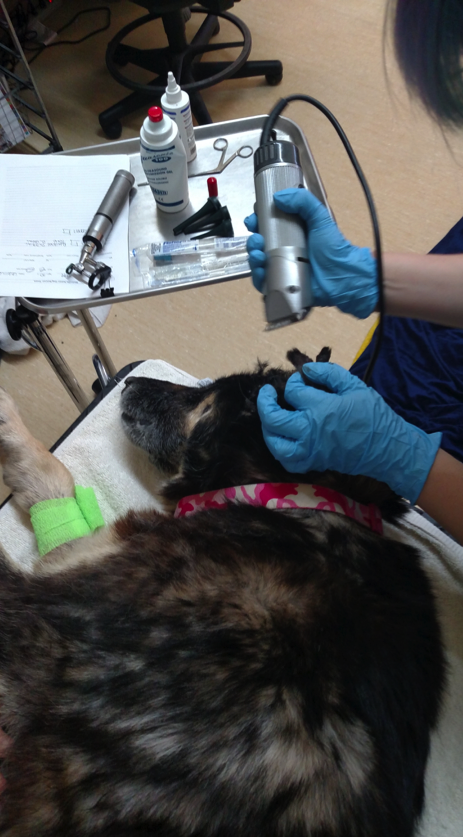
Some dogs are sedated so Dr. Rader can biopsy masses to examine internally and send out for further analysis. With the addition of an ultrasound machine this year, Dr. Rader performs abdominal scans on Muttville’s seniors and looks for abnormalities in the liver, spleen, kidneys, uterus and prostate. The procedure is non invasive and allows for identification of conditions like pancreatitis, Cushing’s disease, pyometra, bladder stones, and lymphomas, all detected through the image sent back by the ultrasound.
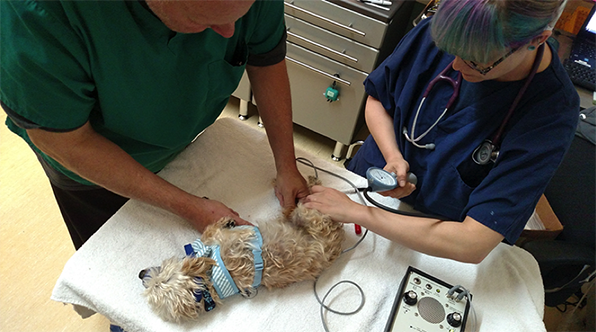
The Muttville Vet Suite Volunteer Program
Muttville’s Volunteer Program in the Vet Suite has been active since 2014. Vet Suite volunteers support Dr. Rader and Angela by making sure the Vet Suite operates efficiently. Volunteers keep the Vet Suite stocked and clean, make sure muzzles and equipment are cleaned and sterilized, and keep dogs comfortable as possible throughout their medical exams.
Volunteers also complete the initial intake forms, highlighting information and medical history, including current medications, recent surgeries, and vaccinations given prior to arrival at Muttville. New arrivals are weighed and then treated to a snack of chicken with flea and tick and heart worm treatments hidden in the mix. Dogs are scanned for microchips. Blood work is run during intake so the results are ready before the end of the exam.
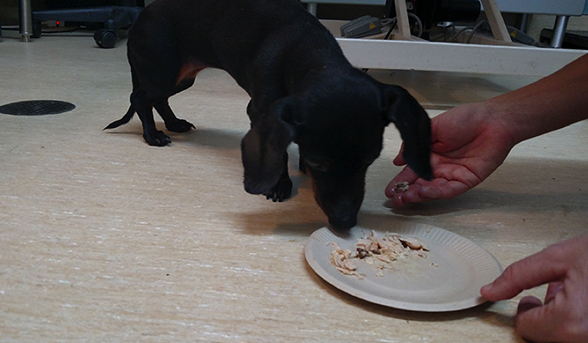
Once Dr. Rader begins an exam, one of the most important volunteer roles is holding the dog so that everyone is safe. In order for an intake exam to run smoothly, volunteers focus on keeping a dog calm and distracted. Some dogs could care less that their ears are getting checked. Some dogs hate it. Some dogs don’t want to stand still during an exam so it’s the job of the volunteer to keep the dog in place and relaxed. Some dogs don’t like the awkward position when placed in a trough for their ultrasound exam, while others drop off and take a nap.
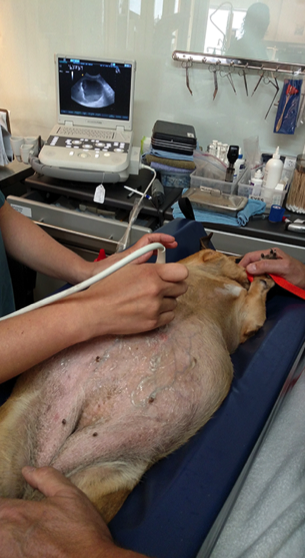
Volunteers at the Muttville Vet Suite are dedicated to the program and to supporting the Vet Suite team. The transformations everyone sees from that first medical exam and the progress throughout treatment is inspiring and sometimes amazing. Senior dogs can be incredibly resilient! They’ll steal your heart as they step into their new beginning.
Interested in volunteering with the Muttville Vet Suite? Learn more about becoming a Muttville volunteer.
Keep up with the pooches at Muttville SF Vet’s Suite’s Instagram account. We’ll share cute pictures of the newest dogs at Muttville getting their intake exams and some fun videos from our series, Tails from the Muttville Vet Suite.
10/25/17

